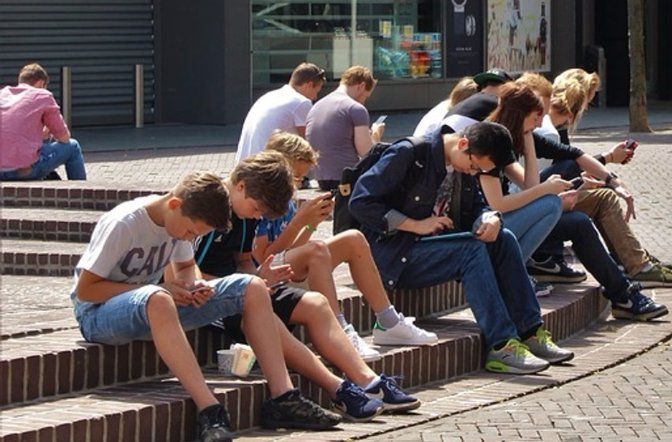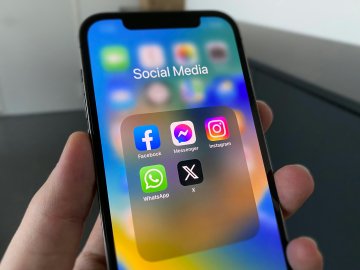In the UK today, around 1 in 10 5-16 year olds have a significant mental health problem. This comes at a time when young people are spending more and more of their lives online, with 12-15 year olds now reportedly spending more than 20 hours per week online.
Online life can seem so all-encompassing that it’s sometimes easy to feel that it places unnecessary pressure on young people. That’s why it’s so important that we encourage them to think critically about their online activity. Monitoring screen time, teaching them to question what they read or see online, and generally taking an interest in what they are doing online and having regular conversations about it is key in achieving this.
Think of it as like teaching your child to swim; there will always be risks associated with the internet, as there are with all aspects of life, but by preparing them with the skills they need to prosper then we can significantly reduce these risks.
Educating and empowering
Schools play an important role in this. Earlier this year, the Children’s Commissioner’s Growing up digital report found that it is essential that we build young people’s resilience to online life. Its recommendation was to build a compulsory digital citizenship programme into the national curriculum which will form one of the four pillars of a child’s education, building on the statutory requirement in the current Computing curriculum.
A recent study by the National Citizen Service found that 58% of young people have felt jealous, negative or insecure because of social media, with 24% saying they felt negative about themselves because they did not look like their friends.
Sharing images on social media is a central part of young people’s lives, as the UK Safer Internet Centre's recent Power of image report discovered, with 1 in 6 children surveyed having shared an image online in the last hour.
Online communities
Social media is part and parcel of society and particularly youth culture. It’s important that we embrace this and the benefits it brings. It enables young people to connect with others, to express themselves and to learn.
The internet is also a fantastic place to find your crowd – as people from across the world connect with one another. If you struggle to fit in at school or in your neighbourhood, connecting with other like-minded people online can provide many young people with the solace they need to feel a sense of belonging. There are lots of really positive places young people can go for advice when they don’t feel as though they can talk to an adult.
A significant benefit of online groups is the feeling of not dealing with problems alone. You can find a support group for almost any health issue, where you can share your thoughts and experiences with others who feel the same way. This is a hugely positive thing for young people who might be struggling emotionally.
The positive role vloggers such as Jonny Benjamin play cannot be overstated. Diagnosed with schizoaffective disorder in 2007, Jonny launched a social media campaign in 2014 to locate the person who talked him out of taking his life in 2008. He also credits the support he has received from his online followers as a huge motivation throughout his difficult times in his journey.
Jonny now uses his profile to raise awareness of mental health issues through social media, public speaking and has launched the ThinkWell campaign to bring mental health education into schools.
This Mental Health Awareness week, Instagram have created a video showcasing how those affected by mental ill health have found communities of support on Instagram.
Reaching out
One of the most important messages for young people struggling with issues such as bullying is not to suffer in silence, but to talk to someone. If this means following the journey of positive influencers like Jonny, then this can only be a good thing. If they feel more comfortable talking about their feelings in a supportive online forum then we should feel encouraged that this support is out there in a way that simply wasn’t possible when many of us were growing up.
The internet is a wonderful channel for raising awareness. Young people engage with it on a daily basis and we should be excited about the opportunities it brings to raise awareness of mental wellbeing.
By doing so, and by helping young people to recognise when their peers may be struggling we can help them to build more online communities where mental wellbeing can flourish.
If you have concerns about a young person’s mental wellbeing there are a number of organisations you can contact:
YoungMinds - the UK’s leading charity championing the wellbeing and mental health of young people.
Papyrus – the national charity for the prevention of young suicide
CAMHS - NHS Child and Adolescent Mental Health Services
MindEd - a free educational resource on children and young people's mental health for all adults.
Rethink - help and support for people suffering with mental illness
b-eat - beating eating disorders
Mental Health Foundation - the UK's charity for everyone's mental health
A Guide to UK-based free Mental Health Helplines
Professionals Online Safety Helpline - free independent expert online safety advice for professionals.






